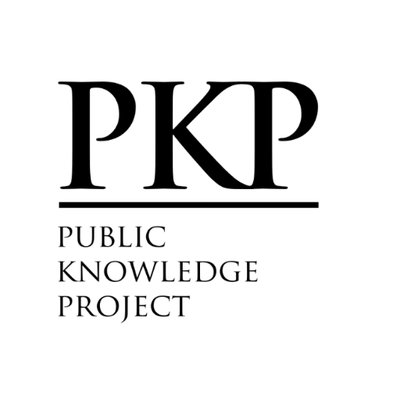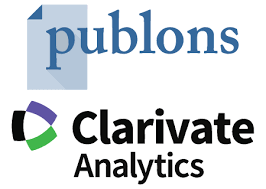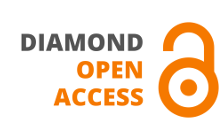The impact of COVID-19 and Russian-Ukrainian war on price volatility of cryptocurrencies
Keywords:
Cryptocurrencies, COVID-19, Russian-Ukrainian war of 2022, volatility, EGARCH modelAbstract
Purpose: This article examined the impact of the COVID-19 and the Russian-Ukrainian war on cryptocurrency price volatility.
Methodology: We studied this impact by using the EGARCH (1, 1) model for the period from January 01, 2019 to January 20, 2024. We have introduced two variables into the model variance equation: the variable relating to COVID-19 and the variable relating to the Russian-Ukrainian war.
Results: The empirical findings indicates that the COVID-19 and the Russian- Ukrainian war of 2022 have reduced the price volatility of Bitcoin, Ethereum, Binance Coin, Ripple, Cardano, TRON, Chainlink, Litecoin, Bitcoin Cash, Ethereum Classic, Stellar, Filecoin, Monero, VeChain, Maker and Bitcoin SV. However, no impact of COVID-19 and Russian-Ukrainian war was found on Dogecoin and Cronos.
Originality: This study used a larger sample than samples used in previous studies that examined the impact of the COVID-19 and the Russian-Ukrainian War on cryptocurrency price volatility. Indeed, this is the only study that is based on an initial sample composed of the top 50 cryptocurrencies in terms of market capitalization. All previous studies have been based on an initial sample composed of the top 10 cryptocurrencies in terms of market capitalization. Therefore, this study focused on cryptocurrencies that have not been used by previous studies.
Downloads
References
• Abdelrhim, M., Elsayed, A., Mohamed, M., & Farouh, M. (2020). Investment opportunities in the time of (COVID-19) spread : the case of cryptocurrencies and metals markets. Social Science Research Network. https://doi.org/10.2139/ssrn.3640333
• Appiah-Otoo, I. (2023). The impact of the Russia-Ukraine war on the cryptocurrency market. Asian economics letters, 4(1). https://doi.org/10.46557/001c.53110
• Ayed, S., Mohamed, A., & Barguellil, A. (2022). War and Cryptocurrency Markets : An Empirical Investigation. Social Science Research Network. https://doi.org/10.2139/ssrn.4116377
• BenSaïda, A. (2023). Safe haven property of gold and cryptocurrencies during COVID-19 and Russia–Ukraine conflict. Annals of Operations Research.https://doi.org/10.1007/s10479-023-05517-w
• Bouoiyour, J., et R, Selmi. (2020). Coronavirus Spreads and Bitcoin’s 2020 Rally: Is There a Link ? Working Papers from HAL.
• Corbet, S., Hou, Y., Hu, Y., Larkin, C., & Oxley, L. (2020). Any port in a storm : Cryptocurrency safe-havens during the COVID-19 pandemic. Economics Letters, 194, 109377. https://doi.org/10.1016/j.econlet.2020.109377
• Daskalakis, N., & Daglis, T. (2023). The Russian war in Ukraine and its effect in the bitcoin market. International journal of Economics and Business Administration, XI(Issue 1), 3‑16. https://doi.org/10.35808/ijeba/794
• Demir, E., Bilgin, M. H., Karabulut, G., & Doker, A. C. (2020). The relationship between cryptocurrencies and COVID-19 pandemic. Eurasian Economic Review, 10(3), 349‑360. https://doi.org/10.1007/s40822-020-00154-1
• Diaconaşu, D. E., Mehdian, S., & Stoica, O. (2022). The reaction of financial markets to Russia’s invasion of Ukraine : evidence from gold, oil, bitcoin, and major stock markets. Applied Economics Letters, 1‑5. https://doi.org/10.1080/13504851.2022.2107608
• Getachew, E., Setiawan, B., Saleem, A., Wahyuni, A., Chang, D. S., Nathan, R. J., & Lakner, Z. (2023). The impact of COVID-19 and Russia–Ukraine war on the financial asset volatility : Evidence from equity, cryptocurrency and alternative assets. Journal of Open Innovation : Technology, Market, and Complexity, 9(3), 100116. https://doi.org/10.1016/j.joitmc.2023.100116
• Ghaiti, K. (2021). The volatility of Bitcoin, Bitcoin Cash, Litecoin, Dogecoin and Ethereum. https://doi.org/10.20381/ruor-26238
• Ghosh, R., et Sayak, M. (2021). Effects of COVID-19 on cryptocurrency market: Volatility and regime switching approach. Business, Economy and Society in Vuca Word, (pp. 189-204)
• Gnazzo, A. J. B.A. (2022). Political Risk and the Cryptocurrency Market: An Application on the Russian Invasion of Ukraine. Georgetown University.
• Hussain, N., Baloch, S., Akhtar, A. B., Naseem, M. R., & Ijaz, M. M. (2023). Impact of Russia–Ukraine War on Bitcoin Volatility: Using GARCH Model Approach. Periodicals of Social Sciences, 3(1).
• Iqbal, & Mallikarjunappa, T. (2010). A study of efficiency of the Indian stock market. Indian Journal of Finance, 4(5), 32‑38. http://indianjournaloffinance.co.in/index.php/IJF/article/view/72610
• Jabotinsky, H. Y., & Sarel, R. (2020). How crisis affects crypto: coronavirus as a test case. Available at SSRN 3557929. https://doi.org/10.2139/ssrn.3557929
• Khan, S. Y., Khawaja, A. A. A., Gheblehzadeh, M., et Kidwai, O. K. (2021). IMPACT OF COVID-19 ON PRICE VOLATILITY OF CRYPTOCURRENCY. International Journal of Management, 193-205.
• Mandaci, P. E., & Cagli, E. C. (2022). Herding intensity and volatility in cryptocurrency markets during the COVID-19. Finance Research Letters, 46, 102382. https://doi.org/10.1016/j.frl.2021.102382
• Mnif, E., Jarboui, A., & Mouakhar, K. (2020). How the cryptocurrency market has performed during COVID 19 ? A multifractal analysis. Finance Research Letters, 36, 101647. https://doi.org/10.1016/j.frl.2020.101647
• Ullah, M., Shaikh, M., Jadoon, I. A., Khan, M. A., & Alizai, S. H. (2021). THE CONTAGION EFFECTS OF COVID-19 PANDEMIC ON CRYPTOCURRENCIES. Humanities & social sciences reviews, 9(2), 370‑379. https://doi.org/10.18510/hssr.2021.9236
Published
How to Cite
Issue
Section
License
Copyright (c) 2025 Ahlem KHAZRI

This work is licensed under a Creative Commons Attribution-NonCommercial-NoDerivatives 4.0 International License.
Authors who publish with this journal agree to the following terms:
- Authors retain copyright and grant the journal right of first publication with the work simultaneously licensed under a Creative Commons Attribution License that allows others to share the work with an acknowledgement of the work's authorship and initial publication in this journal.
- Authors are able to enter into separate, additional contractual arrangements for the non-exclusive distribution of the journal's published version of the work (e.g., post it to an institutional repository or publish it in a book), with an acknowledgement of its initial publication in this journal.
- Authors are permitted and encouraged to post their work online (e.g., in institutional repositories or on their website) prior to and during the submission process, as it can lead to productive exchanges, as well as earlier and greater citation of published work (See The Effect of Open Access).






















